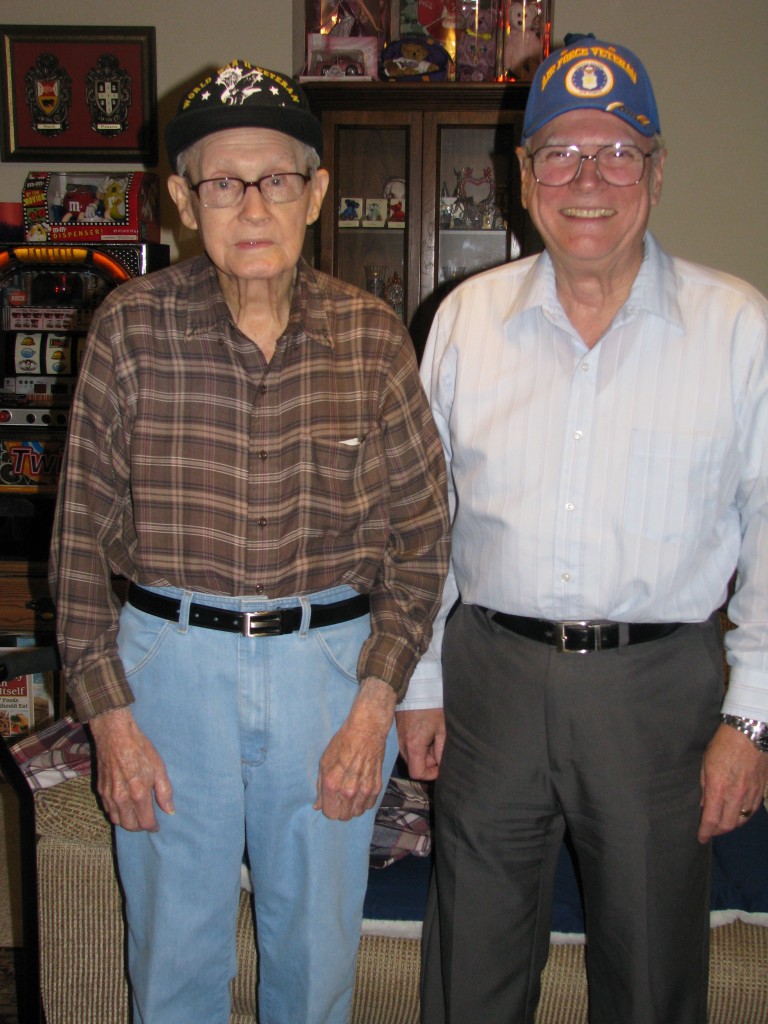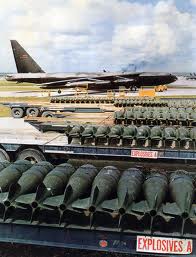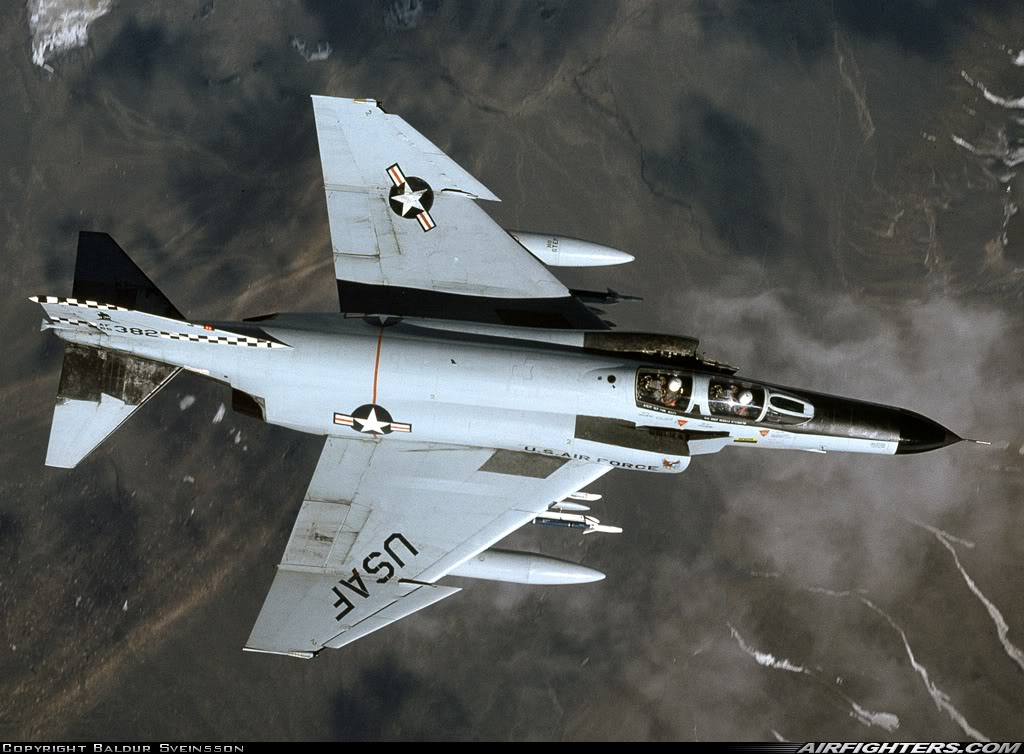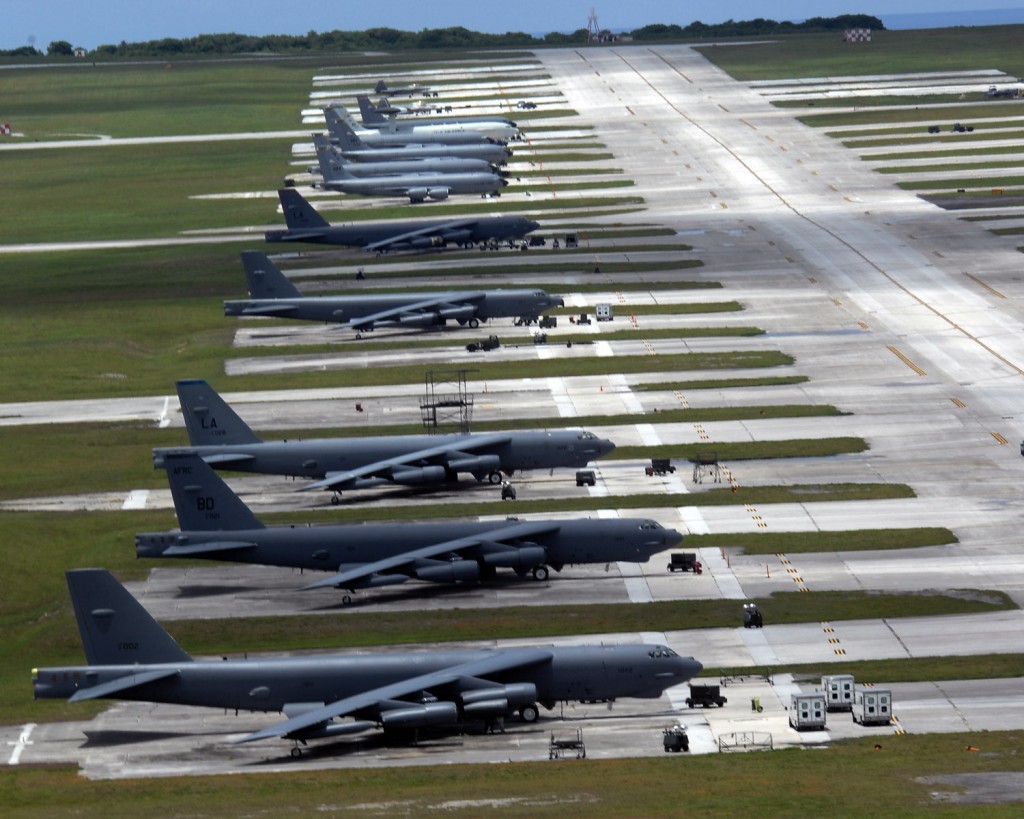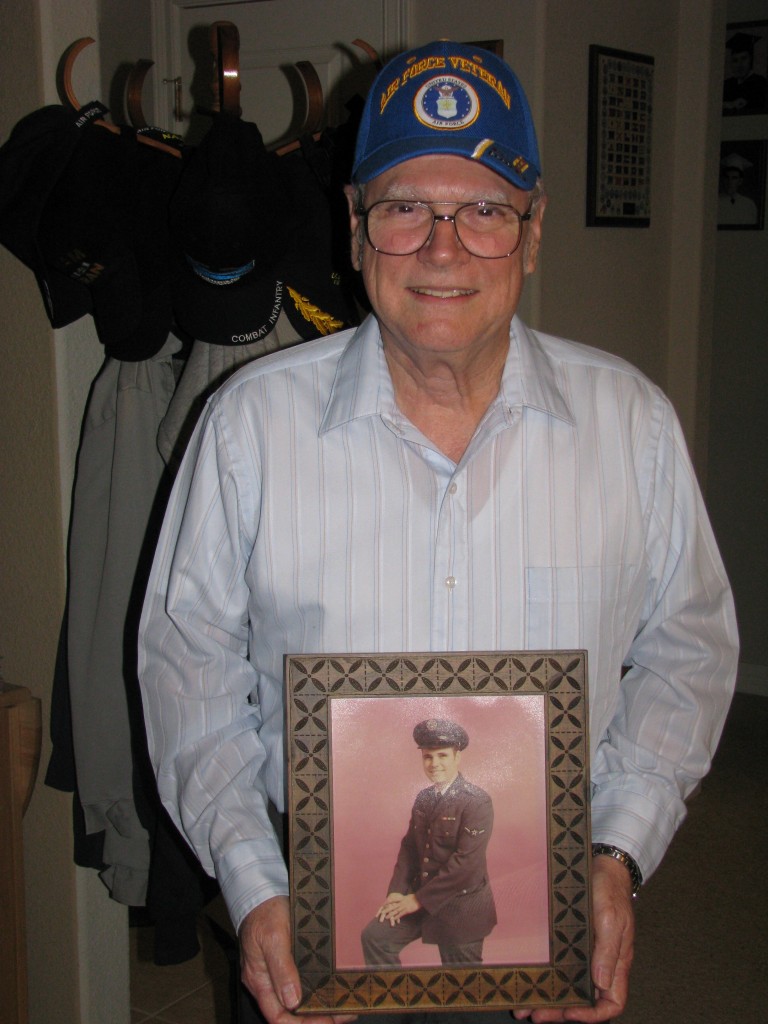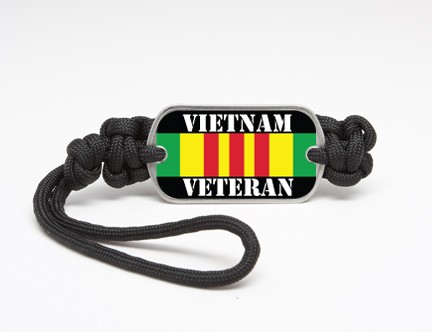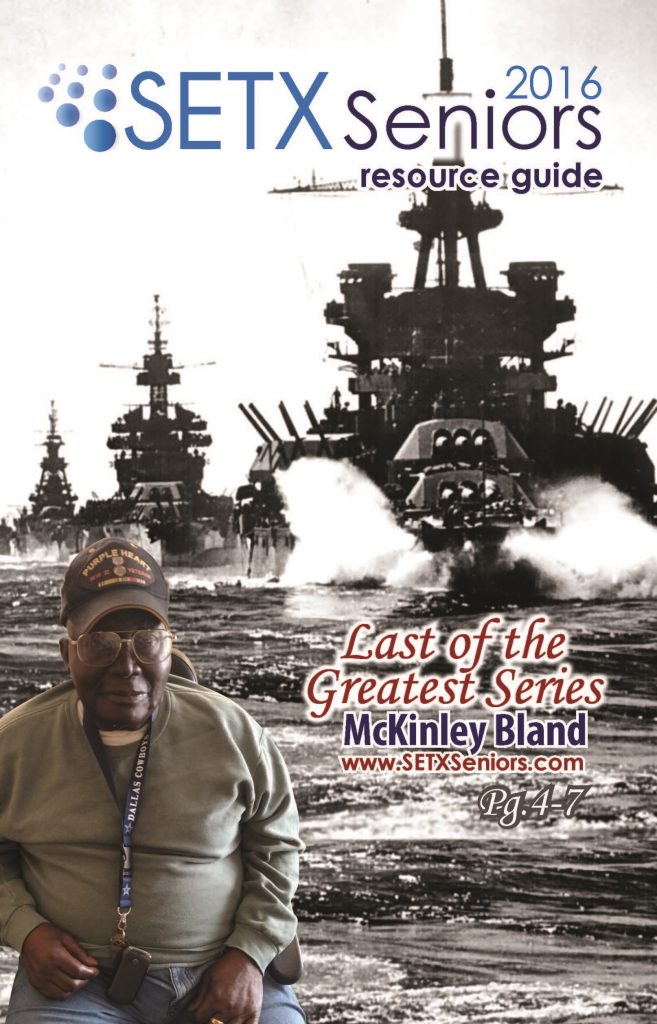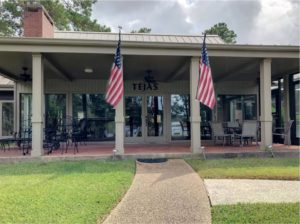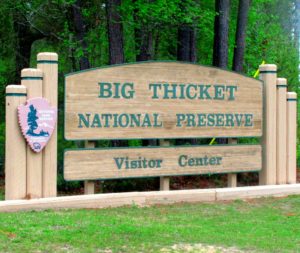Southeast Texas Vietnam Era Veteran Bio – Lester Trauth Jr.
Southeast Texas Veteran Biographies
Lester Trauth Jr. United States Air Force
A couple of years ago, SETX Seniors profiled Lumberton World War II veteran Leter Trauth Senior who has since passed. He was one of our favorite WWII veteran interview!
His son, Lester Trauth Jr., is also a Southeast Texas veteran.
The Trauth family has a rich history of service to the United States.
They immigrated to the US from Germany in 1844.
Lester Trauth Sr. served in the US Army’s 79th Infantry during World War II, from D-Day through the end of the war.
Lester Trauth Jr. served in the US Air Force during Vietnam.
He was enrolled in college, so they deferred him through his college graduation.
He originally hoped to be an Army helicopter pilot, but do to an eye issue, opted to enroll in the US Air Force on June 20 1970.
Trauth underwent basic training at Lackland Air Force Base and then was transferred to Lowry Air Force Base near Denver.
Lester was trained as a Munitions Maintenance Specialist.
The day after Christmas in 1970, he was shipped to Japan for six months where he prepared munitions that were staged for shipment to Vietnam.
Orders were cut to ship him back to the US after all munitions were removed from Japan.
At the last minute his orders were revised and he spent the remainder of the war in Okinawa, Thailand, and Guam.
He was originally housed in “Tin City” on Guam which Trauth compares to an American chicken farm.
The base was designed to house 5,000 and during Vietnam was home to 9,000 US pilots and support personnel.
Soon, Tin City looked pretty good to Trauth. Later arrivals were housed in tents.
Lester’s schedule was brutal for the remainder of the war, six twelve hour shifts per week loading fighter jets and bombers for operations in Vietnam. His unit and others were staging 99 sorties of American B-52s per day – 33 groups of three. These sorties delivered an amazing payload – 2000 bombs per day.
Trauth’s team loaded one ship load of bombs onto bombers and fighter jets every week.
They also trained for use of the Air Force’s stock of nerve gas.
The days were predictable. The mornings and early afternoons would be brutally hot. Uniforms were abandoned and most of the day they wore headbands and open shirts or went shirtless due to the heat and humidity.
The coral rock of the island had been so beaten down by the Air Force and Navy trucks transporting the thousands and thousands of bombs they were loading that it was ground into a talcum powder consistency. The dust blew all over the team and covered them, forcing Trauth’s Air Force support team to wear rags over their faces most of the day.
Then in the middle of the day a single cloud would come over the ammo dump and rain forcefully for fifteen to twenty minutes turning everything to thick mud.
An hour later, the persistent sun would have the sand dried back out to a talcum powder consistency again and they’d soon be covered in dust once more.
Lester Trauth Jr.’s team was responsible for loading:
- F-4 Phantoms
- F-105 Thunder Chiefs
- F-100 Super Sabres
- B-57 Bombers
- B-52 Bombers
Trauth’s teams tested, armed, and assisted in loading the munitions for the fighters and bombers.
It was a dangerous job. Another branch of the service lost nine men during an explosion during routine tests- the accident was due largely to the brutal pace which caused them to deviate from the stringent safety rules.
One strange phenomenon was quickly discovered. Due to an unusual electrolyte makeup in his body, Trauth had to take extra special precautions around the electronic munitions. He was outfitted with specially designed shoes and received orders to use a grounding rod at each magazine.
A young airman was tasked with following Trauth around to make sure he never forgot to ground himself before working in any magazine or any of the planes.
Part of Trauth’s training was in explosive ordinance disposal.
Several times a week, he was tasked with blowing up “surplus” ordinance. Someone in the supply chain decided it was cheaper to blow up thousands of pounds of unused bombs, 50 cal, flares, and 20mm ammunition rather than shipping it back to the US for storage.
Despite taking every precaution, there were a couple of close calls, both involving soldiers from another branch of the service who shared the demolitions area.
In one instance the other branch had a hard time, again partly due to the brutal base, blowing up all of their ordinance on schedule and just pushed it off the side of a cliff rather than blowing it up properly to render it harmless. When Trauth’s unit was ordered to blow up some phosphorous flares some them started a fire which crept down the embankment. Normally it wouldn’t have been a big issue (an Okinawa fire team was on standby), but with several unreported and unexploded munitions down in the ravine things got pretty lively. The Okinawan fire fighters decided to let that fire burn itself out.
In another instance, he’d been digging a large whole to pack explosives for the day’s demolition exercise.
Another branch had used the facility early in the day and left a lot of shallowly buried unexploded mortar rounds and a fire. Fortunately he was pretty deeply into his hole when the mortar rounds began firing off. He said another unit member was impressed with how quickly dirt came flying out of his hole after that. When things calmed down, he asked Trauth where he was digging to. Trauth replied that at the time he’d have been happy to keep digging until he came out on the other side of the earth.
Trauth’s wife joined him on Okinawa in 1971. She remembers Okinawa as a “desert island”. It was 19 miles X 63 miles. You could see both sides from the top of an observation tower.
Okinawa was in “typhoon” alley. One storm hit the island three times, making one pass just off one side of the coast, turning to make a pass down the far coast, before finally turning around and pounding right through the center of the island.
The buildings were all made of steel reinforced concrete with strong steel shutters, so they took the typhoons well.
During the typhoons, all pilots and planes abandoned Okinawa leaving Trauth and many Air Force support groups behind to face the storms.
Unlike his father’s experience in World War II, Trauth’s war was different.
Perhaps due to his stationing, he saw a lot of waste – and wasted effort.
In addition to being ordered to explode thousands of pounds of perfectly good ammunition, bombs and rockets each week, his unit was once tasked with destroying $850,000 worth of bomb fins in a single week. They were ordered to uncrate them and run over them with a bull dozer. The fins were then ordered to be scrapped for which the Air Force received something like $3000.
In addition, Trauth saw the pilots being diverted from key targets. They had the ordinance that would let them take out dams, power plants, and other key targets in Vietnam but the pilots were ordered to avoid them at all costs.
The Vietnamese figured it out and were able to concentrate their anti-aircraft in other locations leading to a far higher loss of US aircraft and pilots.
Despite occasional frustrations, Trauth rose quickly through the Air Force ranks.
In only three years, Lester Trauth Jr. rose to the rank of Staff Sergeant.
At the end of the war, he served fourteen months in the Air National Guard.
Trauth and his fellow soldiers from the Vietnam era still bear emotional scars from the way they were treated by their fellow Americans when they returned home.
Trauth and his team flew into San Francisco (perhaps the epicenter of the anti-Vietnam War movement). At best, people turned their backs on them and wouldn’t talk to them. Others insulted them personally calling them names like, “baby killer”. The only person he remembers being nice was the stewardess who did thank them for their service.
The treatment of Trauth and other returning Vietnam soldiers was so bad that for years he wouldn’t wear anything identifying him as a Vietnam veteran.
It bothered his dad that his son was treated that way. As a World War II veteran, Lester Trauth Sr. was always proud to wear a VFW, American Legion, or WWII Veteran cap around town. His generation was recognized as “Our greatest generation” while his son’s generation was largely ignored – or worse.
He hated that his son wasn’t able to share the same pride in service to the United States.
Only since moving to Lumberton has Trauth been more comfortable with the way he is received as a Vietnam veteran, now he proudly wears his Vietnam Veteran cap when he’s out in town with his dad.
Trauth saw firsthand some of the things protesters didn’t like –the waste, the financial angles, the corruption, and the ineffective government.
He also saw the good in the men and women who served. Regular people like him, mostly kids, who responded to their nation’s draft and did their best to make sure other US soldiers would be able to come home in one piece.
I think with a time machine, most of those Americans would go back in time and take back the way they treated our soldiers when they returned from Vietnam.
Disagreeing with our government is not a reason to turn on men and boys who put their lives on the line in service of our nation.
Thank-you to Lester Trauth Jr. and all of our Vietnam veterans for your service to our nation.
We hope you have enjoyed today’s edition of Southeast Texas Veteran Biographies – Lester Trauth Jr. United States Air Force
 Do you have a local veteran you’d like to see profiled in our magazine?
Do you have a local veteran you’d like to see profiled in our magazine?
-
Daryl Fant, SETX Senior Resource Guide
-
(512) 567-8068
-
SETXAdvertising@gmail.com
